Let us help electrify your fleet
Our electric transportation experts work closely with you to assist in your fleet transition and installation of charging infrastructure. Wherever you are in your fleet journey, we have the expertise to help you implement the right solutions.
Electric Transportation Advisory Tool
From electrifying your fleet to installing workplace, public or multi-unit dwelling charging, this tool calculates upfront and maintenance costs as well as savings potential. Input your vehicle and charging preferences for a complete cost analysis, break even points, and discover eligible incentives.
Our fleet electrification services include:
Commercial EV Guide
Review the guide for more information about vehicles and technologies designed for commercial and industrial use.
Types of EV fleet vehicles
See some of the more common Electric Transportation applications below.
On-Road Vehicles
Whether you are moving people or goods, our process can be applied to many types of vehicles.
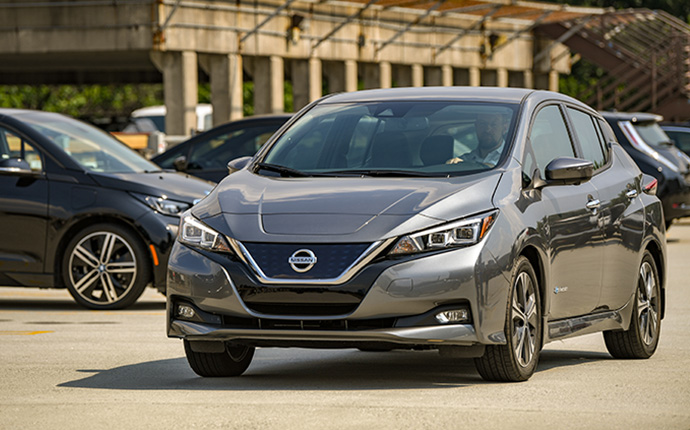
Light duty vehicles (sedans)

Shuttles and utility carts
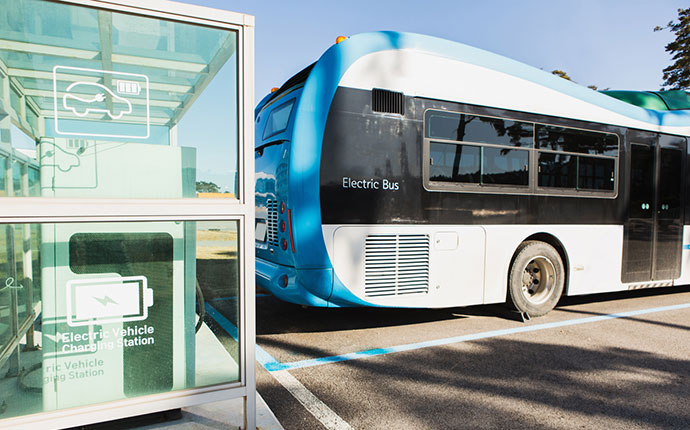
Transit and school buses

Delivery trucks and vans
Off-Road Vehicles
If your business uses off road vehicles to move materials or people, consider the electric alternative and replace fossil fuel equipment with the efficiency of electric power.

Forklift material handling

Airport ground service equipment and terminal tractors
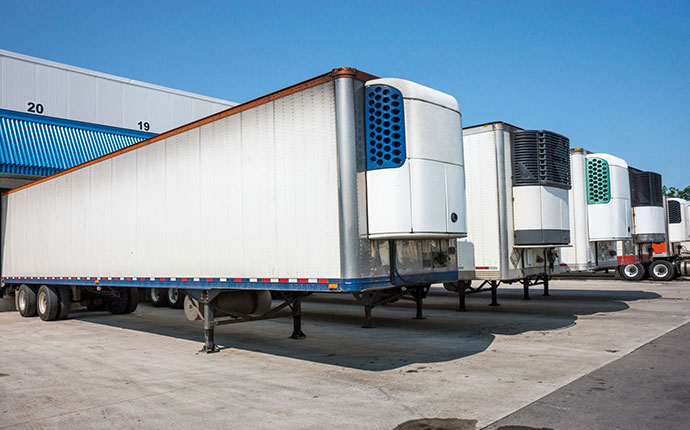
Standby refrigerated trucking

Seaport electrification
Types of Chargers
LEVEL 1
3-5 miles of range per hour
Normal Charging
110V
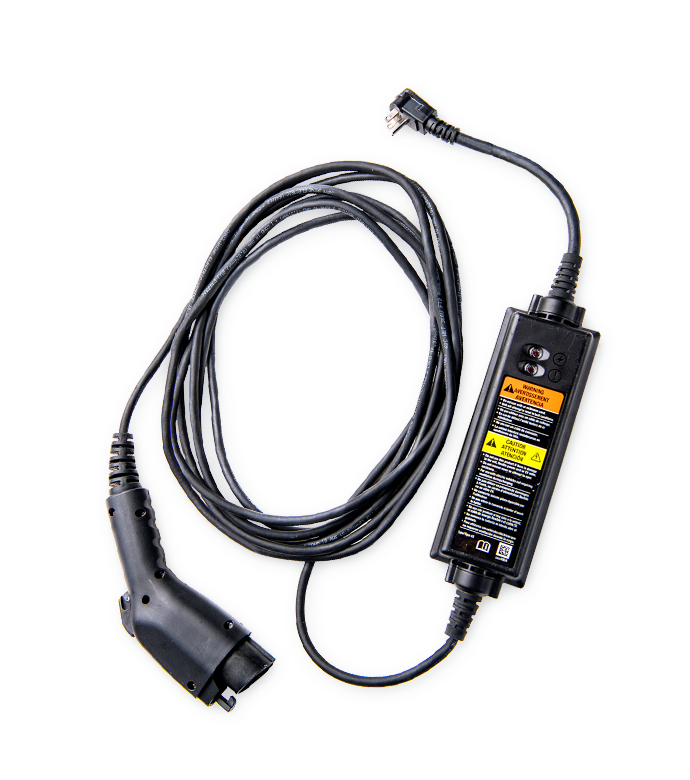
LEVEL 2
8-24 miles of range per hour
Intermediate Charging
208V, 240V / 30 amps / 7.2kW

DC Fast Charging
3-18 miles of range per minute
Fast Charging
480V / 50kW
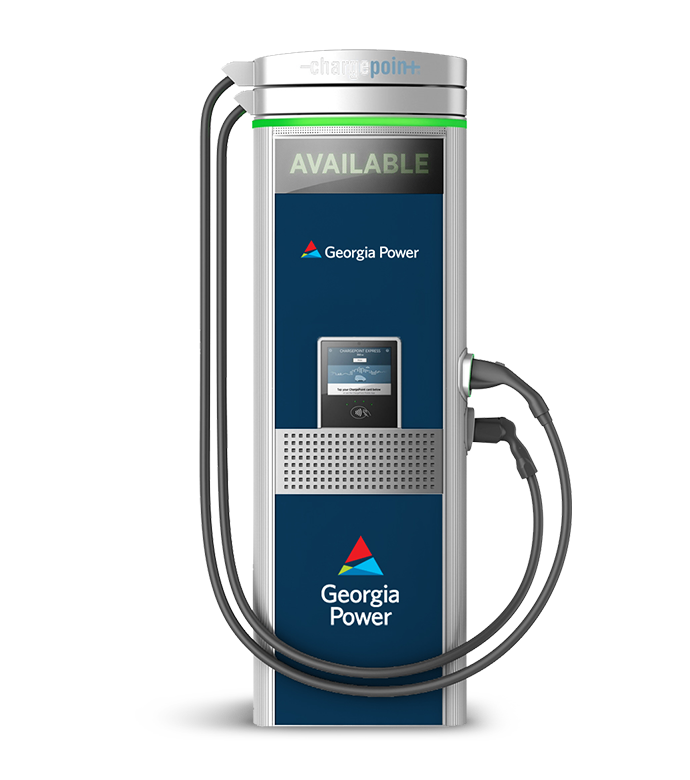
Ultra Fast Charging
480V / 125kW, 160kW, 320kW

Find out how we can help your business
Whether you have general question or are ready to explore how much you could save by switching to electric, our electric transportation specialists are here to help.
Frequently Asked Questions
Get all the details by reading common questions and answers.
Fleet Electrification
I am interested in electrifying my fleet, but I don’t know where to start. How can Georgia Power assist me?
If you are interested in electrifying your company fleet, our Make Ready Infrastructure Program may be a great fit for you. There are many things to consider and evaluate when converting your fleet to electric. Georgia Power has a team of experts that are here to assist from the infrastructure to the charger. We offer turnkey solutions to help fit your business operations needs and budget. Click here to learn more about our Make Ready Program.
How do I choose the right electric vehicle for my fleet?
There are a few variables to consider for fleet electrification. When choosing the right vehicle, consider your routes and daily commute miles, operational needs, etc. The Electric Power Research Institute (EPRI) has a helpful guide for commercial and industrial vehicles here.
Does Georgia Power have Electric Vehicles in their fleet?
Southern Company, Georgia Power’s parent company, has committed to convert 50% of its electric companies’ fleet vehicles in the auto/SUV/minivan, forklift and ATV/cart/miscellaneous equipment segments to electric by 2030. Georgia Power is committed to driving electrification forward.
Make Ready Program
I am interested in adding charging stations to my facility. What programs do you offer a business customer?
Although we don’t currently offer special Business EV rates, we do offer an EV program that provides funding assistance for our Business Customers that are looking to add electric transportation charging stations to their facility. This program is called the Make Ready Infrastructure Program, which provides funding assistance to help support our customer reach their fleet electrification and sustainability goals. To learn more about our Make Ready Infrastructure Program, click here.
What kind of program does Georgia Power offer to help fund my EV charger project?
Georgia Power currently offers a Make Ready Infrastructure Program. This is an electric transportation infrastructure program that is available to all Georgia Power business customers throughout the state of Georgia that provides funding for the electrical infrastructure to support your electric transportation chargers. To learn more about this program, please click here for program details.
What customers are eligible to participate in the Make Ready Program?
All business customers interested in participating in this program can start by completing a Make Ready Application found on our online application portal here.
The program is available to Georgia Power business customers, including commercial and industrial customers, municipalities, universities, schools, hospitals, and multifamily developments. This program is not available for residential customers. For residential programs, click here.
Can you give me details on the Make Ready Program?
When participating in our program, we will install, maintain, and own all the infrastructure up to but not including the charger. You are then able to focus on the purchasing and installing of the charger of your choice and any additional things you need, such as bollards, signage, space painting, etc. The Make Ready program applies to on-road and off-road electric transportation technologies.
How can I apply for the Make Ready Infrastructure Funding Program?
We have made it easy to apply for funding through our online application portal. Before you begin, you will need to have your Georgia Power account number for the site location where you are wanting to install your electric transportation chargers. Click here to apply for Make Ready Funding.
How long will the Make Ready Program be available, is there a deadline for applying?
Program funding is limited. The Make Ready Program is currently scheduled to be available until December 31, 2022, or until funding threshold is met.
Electric Charger
What is the difference between a Level 2 and Level 3 (fast charger)?
A level 2 charger provides charging through a 240-volt AC outlet and requires installation of equipment and a dedicated electrical circuit. A Level 2 charger can easily charge a typical EV battery overnight. Level 2 charging adds 10-20 miles of range to an EV per hour of charging time. A Level 3 fast charger provides fast charging at sites such as heavy traffic corridors and public fueling stations. A DC fast charger can add 60-80 miles of range to an EV in 20 minutes.
What is the difference between a Network and Non-Network Charger?
A network charger is considered a “smart charger”, and this is a great option for public facing chargers. It allows businesses that are wanting to collect data, generate reports, apply user pricing, or to limit access availability where user accounts are required. There are ongoing networking fees by the charger provider and chargers can communicate via cellular modem or WiFi. Check with the charger manufacture on cost and activation steps.
A non-network charger is considered a “dummy charger” and is a great option for plug and charge type applications where the charger is used as a free amenity. This is a great option for workplace or fleet charging that occurs behind the gate if no reporting or data utilization is necessary. These chargers are lower cost and very reliable. No user account is required.
Can I buy my chargers from Georgia Power?
While Georgia Power does not sell business chargers, we do offer Level 2 charger rebates for those Business customers not applying for the Make Ready program. For customers applying for Make Ready funding, we do offer a turnkey solution where we can assist with funding options and charger recommendations beyond the electric infrastructure. If you are interested in chargers for your home, please click here to shop with us.
Electric Charger Rebate
Does Georgia Power offer any additional electric vehicle or EV charger rebates for my business?
While Georgia Power does not offer any electric vehicle rebates. We do currently offer a Level 2 EV charger rebate for businesses.
To learn more about business charger rebates, click here.
To learn more about the Make Ready Program, click here.
Business EV charger rebates and Make Ready Program cannot be combined.
Does Georgia Power have any EV rebates or incentives available for my employees to charge at home?
Georgia Power currently offers an instant rebate on Level 2 EV chargers for our residential customers through our Georgia Power Marketplace. We also offer a residential overnight advantage rate that is a time of use pricing that offers a lower price to support overnight charging (11pm-7am). Your employees can learn more by visiting here.
Rates
How will adding EV charging to my current facilities impact my electric bill?
The actual energy consumption can vary. Depending on your rate, charger type, time of charging, quantity of chargers in use, the transportation technology, and the vehicle battery technology.